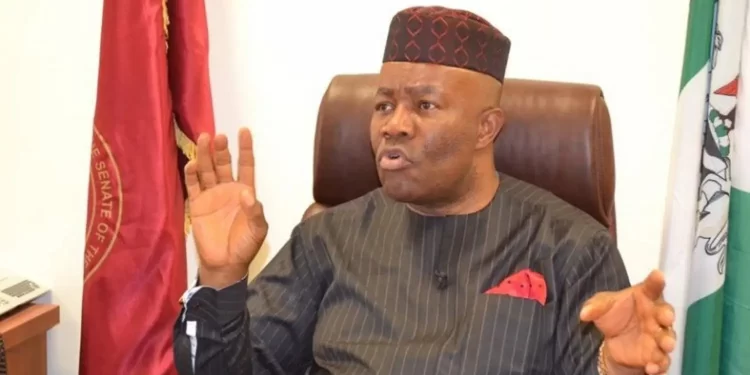The National Assembly Raises Concerns Over Rising Public Service Wage Bills and Governance Costs
The National Assembly leadership has voiced concerns over the increasing burden of public service wage bills, overhead costs for appointed officials, and the compensation packages of elected representatives, all of which contribute to the escalating cost of governance.
During a one-day dialogue organized by the National Institute for Legislative and Democratic Studies (NILDS) in Abuja, Senate President Godswill Akpabio, represented by Senator Jarigbe Jarigbe of Akwa Ibom North, emphasized the imperative of transparency, accountability, and the urgent need to reduce the cost of governance in Nigeria.
Akpabio stressed the importance of governmental efficiency and effectiveness in meeting the nation’s needs and promoting sustainable development. He called for investments in human capital to equip public officials with the necessary skills and knowledge for driving progress, fostering innovation, and nurturing creativity to transform the nation.
Similarly, Speaker of the House of Representatives, Tajudeen Abbas, highlighted Nigeria’s persistent budget deficits, underscoring the criticality of streamlining government operational costs to ensure budgetary stability. Abbas urged concerted efforts to eliminate wasteful and unnecessary expenditures from budget allocations.
In a separate development, as the airlift of Nigerian pilgrims to Saudi Arabia commences, the Independent Hajj Reporters (IHR), a faith-based Civil Society Organization (CSO) monitoring Hajj and Umrah activities, called on the federal and state governments to provide adequate security measures for pilgrims at embarkation points across the country.
IHR’s national coordinator, Ibrahim Mohammed, expressed concerns about the security challenges posed by the mass movement of over 65,000 intending pilgrims from Nigeria to various Hajj camps for screening and transportation to about 15 airports within the next 30 days. Mohammed urged the implementation of a comprehensive and coordinated security strategy by relevant security agencies throughout the outbound and inbound airlift operations.
The organization appealed to state Muslim pilgrims’ welfare boards to discourage intending pilgrims from bringing large escorts to Hajj camps, as such actions increase the risk of security breaches. Additionally, state governments were urged to collaborate with federal security agencies and mobilize local vigilantes and volunteers to enhance security measures and provide internal communication equipment for effective coordination during the airlift operations.
























